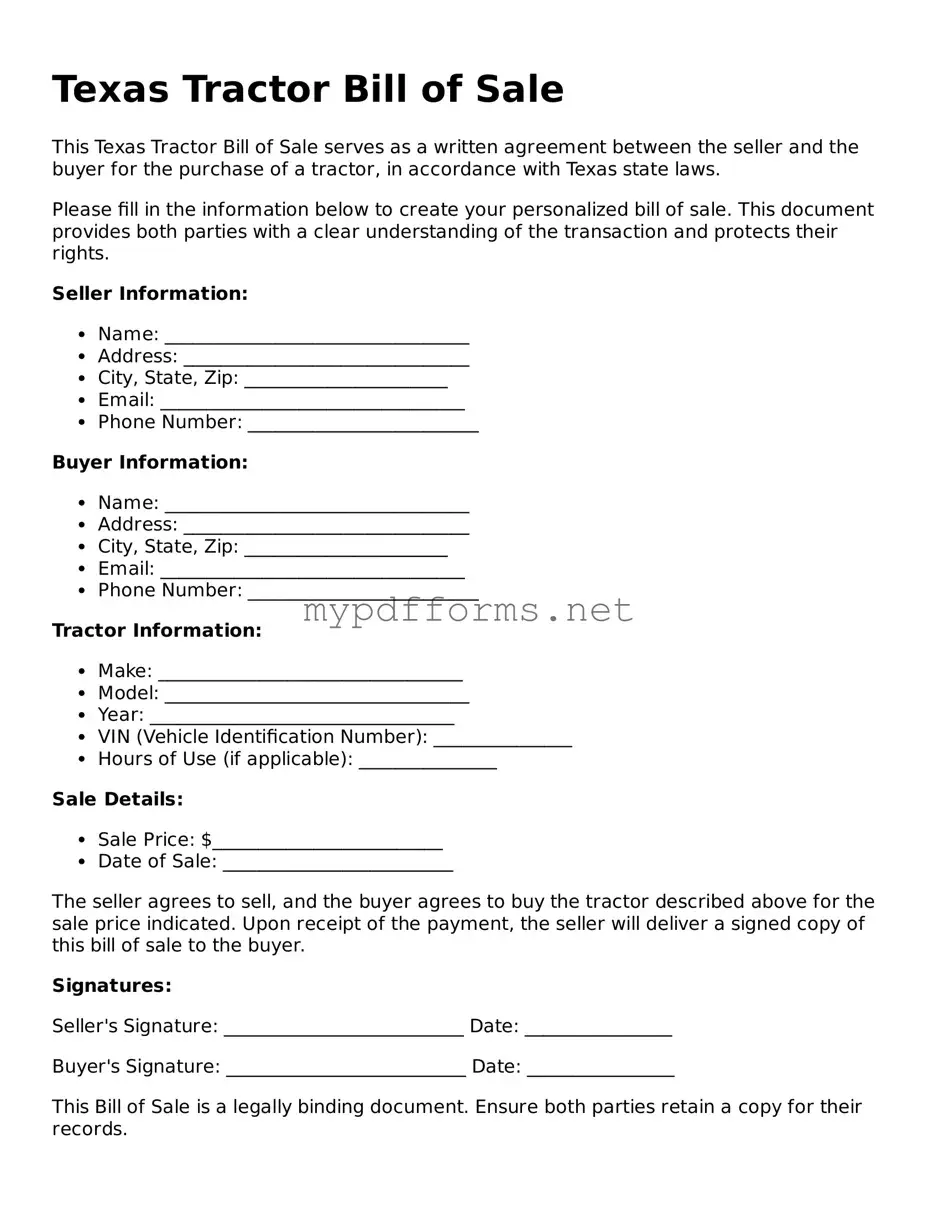Attorney-Verified Tractor Bill of Sale Document for Texas
The Texas Tractor Bill of Sale form is a legal document that records the sale and transfer of ownership of a tractor in Texas. This form serves as proof of the transaction and includes essential details such as the buyer's and seller's information, tractor specifications, and sale price. To ensure a smooth transfer of ownership, it is important to complete this form accurately.
Ready to fill out the form? Click the button below to get started!
Modify Document Here

Attorney-Verified Tractor Bill of Sale Document for Texas
Modify Document Here

Modify Document Here
or
⇓ PDF
Need to check this off quickly?
Edit and complete Tractor Bill of Sale online in just a few steps.